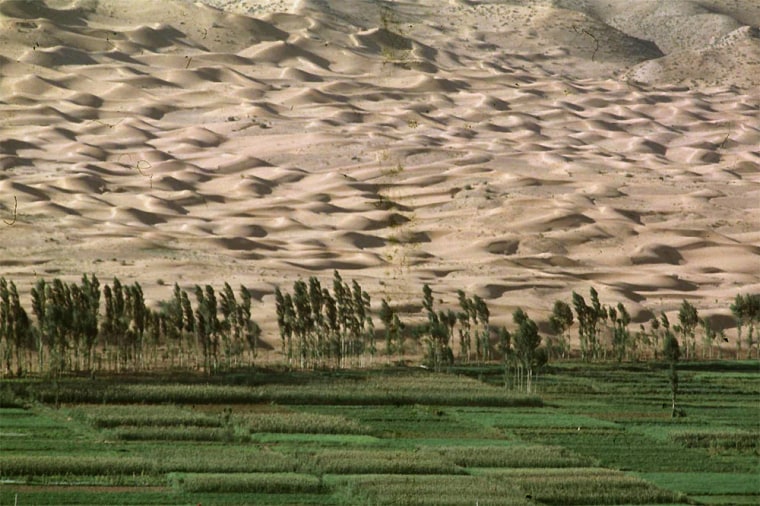
Growing food in bone-dry deserts may get easier and more affordable thanks to an energy-efficient solar-powered desalination technology that’s showing promise in an Israeli pilot project.
At the heart of the technology is a “nanofiltration” membrane that allows plant managers to decide which minerals to filter out of the salty water pumped up from aquifers.
Normally, non-specific membranes in desalination plants filter out all the minerals in the groundwater via reverse osmosis. However, some of these minerals are beneficial to crops. Farmers thus have to add them back in to their irrigation water.
And pumping the salty water through the membrane requires a lot of energy, which is expensive.
“In this case, we’re using nanofilters, which [perform] ‘loose’ reverse osmosis, and we will use much less energy in the process,” Rami Messalem from Ben Gurion University’s Zukerberg Institute for Water Research in Israel, told the Israel Ministry of Foreign Affairs.
Individual farmers or plant managers can tweak to the membrane to filter out only the minerals they don’t want, leaving in those they do.
Research to date indicates using the membrane requires about a quarter of the power used to run traditional desalination plants. The lower energy requirement thus opens the possibility of using solar panels to power the desalination plant.
Such solar-powered desalination plants, in theory, could be installed at rural farmlands far from the electricity grid, allowing the cultivation of crops in otherwise bone-dry regions.
Messalem and his partners, including Central Arava Research and Development, are currently running a solar-powered pilot project in the desert north of the Dead Sea where the team is growing four crops.
“So far, the experimental results are promising,” Israel Ministry of Foreign Affairs noted. “The desalinated water enables farmers to use 25 percent less water and fertilizer than usual.”
The research has been funded by Swiss philanthropist Samuel Josefowitz. The team is seeking additional funding to continue their research.
— via Earth Techling
John Roach is a contributing writer for NBC News Digital. To learn more about him, check out his website. For more of our Future of Technology series, watch the featured video below.